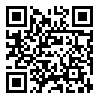Volume 3, Issue 4 (Fall 2023)
J Clin Sport Neuropsychol 2023, 3(4): 0-0 |
Back to browse issues page
Download citation:
BibTeX | RIS | EndNote | Medlars | ProCite | Reference Manager | RefWorks
Send citation to:



BibTeX | RIS | EndNote | Medlars | ProCite | Reference Manager | RefWorks
Send citation to:
Talebkhah P, Pourabdol S, Sadjadpour S H. Predicting Self-Injurious Behaviors by Traumatic Childhood Experiences. J Clin Sport Neuropsychol 2023; 3 (4) : 5
URL: http://jcsnp.ir/article-1-94-en.html
URL: http://jcsnp.ir/article-1-94-en.html
1- M.Sc. in School Counseling, University of Tehran, Tehran, Iran.
2- Department of Psychology, Faculty of and Literature and Humanities, Urmia Inivaersity, Urmia, Iran., Assistant Professor, Department of Psychology, Faculty of and Literature and Humanities, Urmia Inivaersity, Urmia, Iran.
3- Ph.D. Clinical Psychology, Shahed University, Tehran, Iran.
2- Department of Psychology, Faculty of and Literature and Humanities, Urmia Inivaersity, Urmia, Iran., Assistant Professor, Department of Psychology, Faculty of and Literature and Humanities, Urmia Inivaersity, Urmia, Iran.
3- Ph.D. Clinical Psychology, Shahed University, Tehran, Iran.
Abstract: (1135 Views)
Background and Purpose: Non-suicidal self-injury (NSSI) behaviors, or self-harm without the intention of suicide, is a significant and powerful predictor of suicide attempt. Therefore, identifying factors related to self-injurious behaviors holds great importance. The aim of the present study was to predict self-injurious behaviors (SIB) based on trauma childhood experiences (TCE).
Method: The population of this research comprised high school students in the city of Bojnourd during the academic year 2021-22. From this population, 300 individuals were selected with convenience sampling method. Out of the participants, 288 completed the Non-Suicidal Self-Injury Scale (KhaniPour et al., 2014) and the Childhood Trauma Questionnaire (Bernstein et al., 2003). The data were analyzed using regression analysis in the SPSS software.
Findings: The results indicated that each of the five subscales of TCE, including emotional abuse, physical abuse, sexual abuse, emotional neglect, and physical neglect, significantly predicted SIB.
Conclusion: Based on the findings of this study, it can be concluded that components of TCE serve as important predictors for SIB.
Method: The population of this research comprised high school students in the city of Bojnourd during the academic year 2021-22. From this population, 300 individuals were selected with convenience sampling method. Out of the participants, 288 completed the Non-Suicidal Self-Injury Scale (KhaniPour et al., 2014) and the Childhood Trauma Questionnaire (Bernstein et al., 2003). The data were analyzed using regression analysis in the SPSS software.
Findings: The results indicated that each of the five subscales of TCE, including emotional abuse, physical abuse, sexual abuse, emotional neglect, and physical neglect, significantly predicted SIB.
Conclusion: Based on the findings of this study, it can be concluded that components of TCE serve as important predictors for SIB.
Article number: 5
Type of Study: Research |
Subject:
Clinical Psychology
Received: 2023/09/18 | Accepted: 2023/10/14 | Published: 2023/11/2
Received: 2023/09/18 | Accepted: 2023/10/14 | Published: 2023/11/2
| Rights and permissions | |
 |
This work is licensed under a Creative Commons Attribution-NonCommercial 4.0 International License. |





